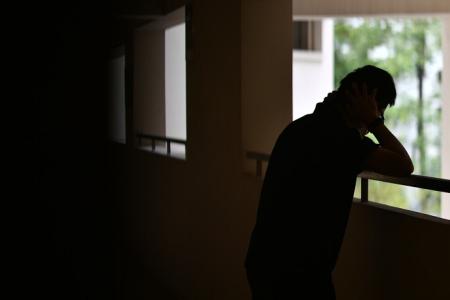‘Grandmothers’ counsel people with common mental disorders
In Zimbabwe, which has fewer than 20 psychiatrists serving a population of 15 million, an initiative that started with senior volunteers offering mental health help in the community has been replicated in other African countries and elsewhere, including New York.
Sitting on a wooden Friendship Bench placed near primary health care clinics or safe community spaces, these community health workers known as ‘grandmothers’, counsel people who need help for common mental disorders, such as anxiety and depression.
They have no medical background but have been trained to do counselling, usually for six structured 45-minute sessions.
The Friendship Bench initiative was founded in 2006 by Dr Dixon Chibanda, a Zimbabwe-based psychiatrist, after one of his patients died by suicide because her family could not afford the bus fare to travel to Harare, the capital city, to see him.
The Asian hub of the Mental Health Innovation Network (MHIN Asia) set up in Singapore earlier in 2024 highlighted this project to The Straits Times as one of the possible solutions that can be adapted here, and in the region.
MHIN is a knowledge exchange hub for the global mental health community that was created 10 years ago by the London School of Hygiene and Tropical Medicine and the World Health Organisation.
Regional hubs were subsequently created in Africa, Latin America and the Caribbean, and Asia.
The Asian hub, hosted by the SingHealth Duke-NUS Global Health Institute (SDGHI), was established with funding from Singapore-based Indonesian palm oil giant Musim Mas Group, to facilitate cross-country exchange and learning about mental health.
Musim Mas donated $1m to the Singapore General Hospital (SGH) for developing future healthcare leaders through a regional fellowship programme as well as the establishment of MHIN Asia.
This was part of a $5 million donation tranche that it made to six charities, including the philanthropic organisation Majurity Trust, which received $1.1 million for charities that provide youth mental health support, and the Community Chest, which will use $1million for causes that support the underprivileged, at-risk children and youths, and other vulnerable groups.
Musim Mas said it wanted its donation to go towards a wide range of causes that can better the lives of everyday Singaporeans.
“But having said that, we are aware that mental health is a growing concern in the region and deserves more support,” said Mr Alvin Lim, Musim Mas’ chief financial officer and executive director.
“We believe SGH’s aim of establishing the first Asian hub for MHIN will play an important role in the development of the human resources and institutional support needed to advance mental healthcare in the region, including Singapore.”
As Singapore shifts the centre of gravity of healthcare from hospitals to the community, there is much that it can learn from poorly resourced countries, said Associate Professor Tan Hiang Khoon, director of SDGHI and deputy CEO (Future Health System) at SGH.
“This Friendship Bench is one of the many examples where we call task shifting. We shift the task of what is typically the responsibility of trained healthcare professionals to a group of people that are trained especially for their particular class, but effective in many ways,” he said.
“They have the respect of the folks that they are talking to.”
There are other mental health initiatives that MHIN Asia can share, including those in regional countries.
Mental health systems and solutions originating from Asia remain significantly underrepresented globally, and many countries in the region continue to grapple with challenges such as stigma and a lack of evidence-based implementation, he said.
Platforms such as MHIN Asia are thus crucial in elevating Asia’s position in the global conversation on advancing mental health, he added.
Prof Tan said the hub will not just curate existing knowledge, but is willing to invest in research to create new knowledge, too.
It can also be used as a platform for leaders, mental health champion and practitioners to share best practices and learn from each other, and as a think tank for the region.
Assistant Professor Anne-Claire Stona, the global mental health lead at SDGHI, said Singapore, with its national mental health and well-being strategy, still needs to come up with new innovations and new models of care while others in the region can tap on the hub to learn about its strategy.
She said MHIN Asia is now working on mapping the existing mental health innovations in South and South-east Asia, in order to understand the needs, barriers and facilitators to such innovations as well as collate and showcase evidence-based solutions and ideas.
MHIN Asia will be officially launched during the Global Mental Health in Asia 2025 symposium from Feb 17-19, 2025, in Singapore.
Get The New Paper on your phone with the free TNP app. Download from the Apple App Store or Google Play Store now


